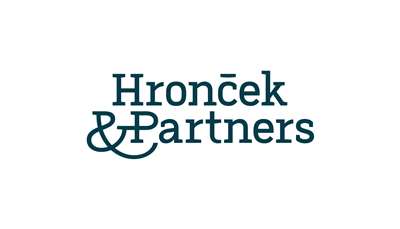Crypto-asset service providers (CASP) have long faced problems with banks' reluctance to allow them to open bank accounts, and access to banking services is an issue for them.

Banks in Europe are closing bank accounts of entities operating in this sector without justification or with only very general explanations, or are refusing to open accounts for them altogether. CASPs have long shown an interest in complying with all the rules applicable to them, particularly in the area of obligations under the Anti-Money Laundering Directive. However, it remains extremely difficult for CASPs to find a bank that would allow them to fully use their services and convert between cryptocurrencies and fiat currencies (Crypto On-Ramps and Off-Ramps).
The question remains as to what extent the new legal framework of the Markets in Crypto-Assets Regulation (MiCA) will have an impact on solving this problem within the European Union. Will banks be more willing to provide their services to CASPs after MiCA comes into force? Will other payment service providers be able to provide these services to CASPs?
The arrival of the MiCA regulatory framework will certainly lead to a significant reduction in the number of CASPs, as not all entities currently operating in the market will be able to meet the conditions imposed by MiCA. At the same time, however, entities that successfully obtain a license to provide crypto-asset services will enjoy greater credibility in the eyes of investors and traditional financial institutions, particularly banks and credit institutions, which may be more open to cooperation as a result. In general, therefore, banks could be more open to cooperation after such a "cleaning up" of the crypto-asset service provider sector, which could lead to a convergence of the banking and crypto sectors.
Reasons why banks are restricting their services to CASPs
It is clear that banks have so far viewed CASPs very negatively and skeptically. According to the AML Directive, financial institutions, including banks and CASPs, must have policies, procedures, and control mechanisms in place to manage the risks associated with money laundering and terrorist financing. In applying these rules, banks terminate or refuse to establish business relationships with customers or groups of customers that they consider risky in this regard, including CASPs.
Although decisions not to establish or terminate a business relationship or not to carry out a transaction may, under certain conditions, be in accordance with Article 14(4) of the 4th AML Directive, reducing risk by excluding entire categories of customers from access to services without due consideration of the risk profiles of individual customers may be unjustified. 4 of the AML Directive, reducing risk by excluding entire categories of customers from access to services without taking into account the risk profiles of individual customers may be unjustified and indicative of ineffective management of the risks of money laundering and terrorist financing. This type of ineffective risk management is referred to as "de-risking".
Providing access to at least basic financial products and services is a prerequisite for participation in modern economic and business life, and unjustified risk reduction may result in the financial exclusion of legitimate customers. It can also affect competition and financial stability.
Compliance with AML rules and supervision by the NBS
The AML Directive provides a framework for monitoring and assessing financial institutions' approaches to money laundering and terrorist financing risks, including de-risking practices. If a bank is found to be acting unreasonably or inadequately in its risk assessment, the supervisory authority may require the bank to take measures to remedy the situation, impose sanctions or other regulatory measures to ensure compliance with the legislation and protect the integrity of the financial system. Under Article 48 of the AML Directive, Member States are required to ensure that the competent supervisory authorities have the appropriate tools to verify that financial institutions and other obliged entities comply with the requirements of this Directive. Under Act No. 297/2008 Coll. on the prevention of money laundering and terrorist financing, the NBS has, among other things, the power to carry out inspections, request information and documents necessary to verify compliance with the law, and impose sanctions for breaches of these regulations. Therefore, financial institutions that practice de-risking and unjustifiably deny access to their services to certain groups of financial market entities may be directly sanctioned by the NBS for such practices.
Possible violations of competition rules and control by competition authorities
The European Banking Authority (EBA) has addressed concerns about risk reduction and its impact on the financial system of the European Union, emphasizing that unjustified risk reduction can lead to financial exclusion, affect competition, and destabilize the financial market.
The competition law applicable within the European Union (in particular Articles 101 and 102 of the Treaty on the Functioning of the European Union) aims, in particular, to prevent practices that distort competition and the single market. Banks that unreasonably refuse to provide their services to CASPs could, in certain circumstances, engage in exclusionary practices by effectively preventing CASPs from competing in the financial services market. The European Commission and competition authorities will have to assess in each individual case whether the banks' measures are justified or whether they constitute an unnecessary barrier to competition.
AML/CFT concerns can also be used as a pretext to reduce competition in the market. This is all the more true for CASPs in a situation where, after MiCA enters into force, credit institutions themselves may be in the position of CASPs, whereby they can start providing crypto-asset services directly without the need to obtain a specific license2 and thus become direct competitors to entities that are currently denied access to banking services.
Compliance with the new MiCA regulation
At the same time, MiCA directly prohibits market manipulation, which is considered, among other things, to be "securing a dominant position over the supply of or demand for a crypto asset, which has or is likely to result in the direct or indirect fixing of purchase or sale prices, or creates or is likely to create other unfair trading conditions."
Under certain circumstances, in particular if a credit institution itself provides crypto-asset services that it can start providing in a simplified manner without the need to obtain a specific license, and at the same time engages in de-risking practices towards CASPs, this could also constitute market manipulation in violation of MiCA.
In addition, it is important to mention the obligation of CASPs under MiCA to comply with measures to ensure the separation of funds. CASPs are required to take all necessary steps to ensure that client funds other than electronic money tokens held with a credit institution or central bank are held in an account that is identifiable separately from all accounts used for holding funds belonging to CASPs. Therefore, if CASPs continue to have problems with access to banking services and opening bank accounts, it would also be difficult for them to comply with this obligation and thus to meet the conditions for obtaining a license to provide crypto-asset services. Under certain circumstances and with the right setup, an alternative solution could be to use the services of payment institutions.
Even the new MiCA rules may not guarantee that banks will change their current practices and become more willing to provide services to CASPs. At the same time, even before obtaining a license to provide cryptoasset services, CASPs applying for a license must demonstrate to the supervisory authority their procedure for separating cryptoassets and client funds.
If you have encountered de-risking in your business activities in the field of cryptoassets, please do not hesitate to contact us.
